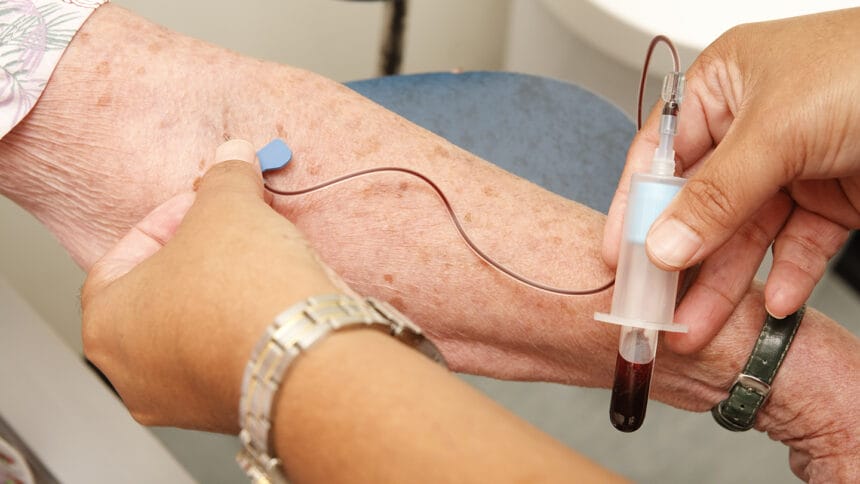As of now, there’s no therapy approved by the United States Food and Drug Administration for asymptomatic people at risk of Alzheimer’s disease. But blood tests that can spot biomarkers linked to the disease are in development. The tests soon could be used in people who don’t yet have symptoms of the disease — but this would raise clinical and ethical questions, according to an article published Thursday in Scientific American.
New Alzheimer’s Association (AA) guidelines acknowledge that biomarkers can be useful in diagnosing the disease, but at this point discourage giving asymptomatic people blood tests except for research purposes.
“But clearly the authors [of the AA guidelines] envision a time when presymptomatic testing will be routine,” wrote Laura Hercher, the author of the Scientific American article.
“Under the new [AA] proposal … it is not inconceivable that, someday soon, you will walk into your annual physical feeling perfectly healthy and leave with a diagnosis of [Alzheimer’s disease],” Hercher added.
Not all clinicians want to dole out Alzheimer’s disease blood tests just because they offer a cost-effective way to get a glimpse into what’s happening in the brain.
The International Working Group of dementia experts and the American Geriatrics Society doesn’t want to rely on blood tests alone to diagnose the disease or tell someone if they’re at risk.
“The difference between ‘diagnosed’ and ‘at risk’ might seem like semantics, but the word “diagnosis” has significant real-world implications. It carries weight with clinicians and insurance companies, increasing the odds that therapeutics will be prescribed and covered. This can be a good thing, and it can be a problem,” the author wrote.
Hercher also pointed out that relying on biomarkers for an Alzheimer’s disease diagnosis brings up questions about how people will respond to a positive result.





